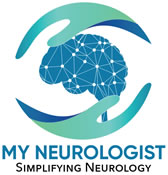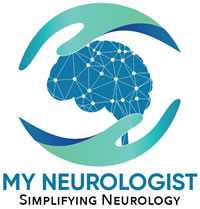This post is about Alzheimer disease. Please read a separate post on Dementia, which provides the larger perspective on this condition, especially its management.
Alzheimer disease is a brain disorder. It is named after Dr. Alois Alzheimer who first reported this condition. He discovered certain abnormalities in autopsy specimen of the brain of a patient with this disease.
What exactly is the problem in AD?
AD is a degenerative brain disorder. Brain neurons of patients with AD have abnormalities called neurofibrillary tangles and plaques. It is not completely known how this disease starts, what exactly leads to build-up of these abnormalities, and why brain is unable to stop this process. The end result is degeneration or destruction of neurons.
How common is AD?
AD is the most common cause of dementia, affecting about 6 million people in USA. This number is rapidly increasing and is expected to triple by 2050. Generally speaking, it is a disease of old age; almost 80% of patients are 75 or up. Women are about twice more affected than men.
What is the typical life expectancy with AD?
It is about 15-20 year.
Is AD a genetic disorder?
Genetic abnormalities are significantly involved in a small percentage of patients. Also, risk of AD increases if a first-degree relative is affected, but in most cases exact mode of inheritance is not well defined. It can still happen without any family history. In my practice, I do not recommend genetic analysis due to multiple reasons. First, there is no available specific treatment to alter its course, and so no incentive for exploration. Second, a negative test does not preclude having the disease. Third, in most cases diagnosis of Alzheimer is not difficult to make without genetic analysis. And, finally, many findings on genetic analysis while not providing a definitive answer may put the person at risk of discrimination in health-care or in insurance areas.
What are the risk factors for AD?
Following are identifiable risk factors, some are specific for AD, and others are for dementia in general:
- Genetic factors (AD)
- Hypertension
- Stroke
- Down Syndrome (AD)
- Traumatic brain injury
- Obstructive sleep apnea
- Low baseline education
- Sedentary life-style
- Social isolation
- Chronic depression
- Alcohol and drug abuse, including marijuana
Can AD affect younger people?
Most patients with AD are 75 plus, but it can affect patients younger than 65. Its presentation in young age can be little different, many times presenting with difficulty speaking instead of forgetfulness.
How is AD diagnosed?
AD is diagnosed based upon its symptoms and signs. History is taken from the patient, and other people involved in patient’s life such as family, friends, or co-workers. This issue is discussed in detail in the section on dementia.
What are imaging (CT and MRI) findings in AD?
CT or MRI may reveal atrophy (shrinking) of brain. This is noted more so in parietal and temporal lobes, and is more prominent in younger patients with AD.
What is the role of PET scan in AD?
Unlike CT or MRI scans, which reveal a picture of brain, PET scan reveals functional capacity of brain. In a patient with AD, one may find less activity in parietal and temporal lobes. PET scan is not routinely needed to make diagnosis of AD. It is a good tool in patients where diagnosis is uncertain, especially in younger patients with dementia, and if there is question of frontal lobe dementia.
Is there a blood test for AD?
Not at this time.
What are different stages of AD?
Usually patients are given diagnosis of mild, moderate, and severe dementia, and also in-between such as mild to moderate and moderate to severe. All these designations are determined based upon history and patient’s clinical examination. There is no particular blood or imaging test to determine these stages.
What is mild cognitive impairment?
The diagnosis of mild cognitive impairment is given to a patient who might have mild symptoms suggestive of dementia, but formal examination and testing do not reveal any significant issues. Some but not all of these patients progress to develop dementia.
How is AD treated?
With lack of a specific treatment, treatment of many types of dementia is similar. Please review the section on treatment of dementia, under the post Dementia.
Is there a cure for AD?
Not at this time.
Where can I get more information on AD?
American Alzheimer Association


Leave a Reply
Your email is safe with us.
You must be logged in to post a comment.